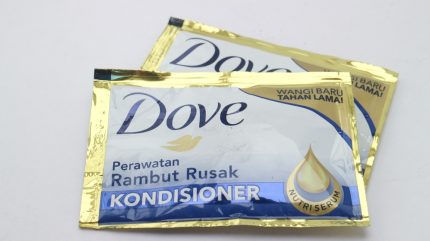
Environmental non-profit organisation Greenpeace has criticised personal care brand Dove for “fuelling a human and environmental crisis by pumping huge volumes of toxic single-use plastic out into the world.”
According to Greenpeace, Dove produces 6.4bn single-use sachets annually – 12,000 per minute. The sachets are difficult to collect and recycle.
Dove is owned by consumer goods giant Unilever, on which Greenpeace published a report in late 2023: “UNCOVERED: Unilever’s complicity in the plastics crisis and its power to solve it”.
Its research found that Unilever is set to miss its target of using less than 50% virgin plastic by almost a decade.
Greenpeace adds that Unilever “claims to want a ‘waste-free’ world, yet just 0.2% of its packaging is reusable.” Dove began using 100% recycled plastic bottles across its brand portfolio in 2019.
The non-profit emphasises that recycling is not the sole answer to the global waste crisis and points to the imminent Global Plastics Treaty as a point of hope.

US Tariffs are shifting - will you react or anticipate?
Don’t let policy changes catch you off guard. Stay proactive with real-time data and expert analysis.
By GlobalDataGreenpeace asserts that Unilever has “huge influence” over the treaty and could push for an end to single-use plastic, but “continues to promote a throwaway single-use model where corporate profits outweigh the human and environmental cost to our communities.”
Alongside challenging Unilever to address its plastic usage, Greenpeace is calling for signatories on a pledge to boycott Dove products, called “It’s Time to Ditch Dove”.



